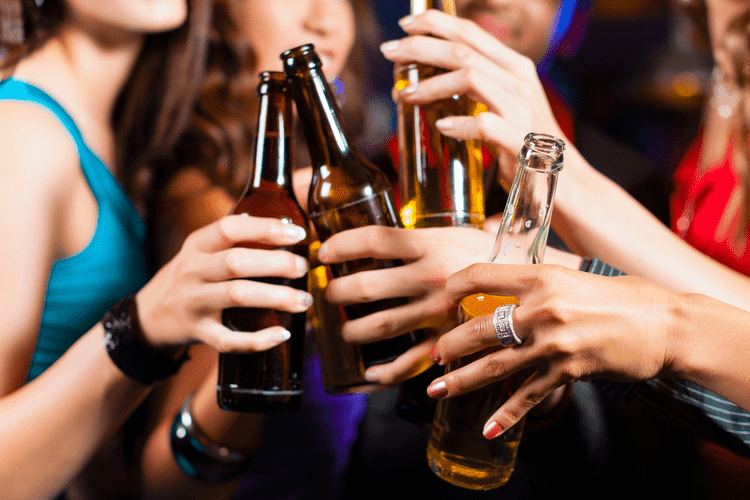Integrating meditation into your daily routine can help you build a resilient mentality, better equipped to manage stress and cravings. The earlier you can recognize drinking as a problematic behavior, the better the chances are of stopping an addiction before it starts or getting the help you need to move toward sobriety. Participation in support groups like Alcoholics Anonymous (AA) provides a community of individuals who share similar experiences and struggles, offering mutual support and encouragement. If you’re taking this step though, it is very important that you do so safely and with professional guidance, such as that offered by InnerLife Recovery.
Signs of Alcohol Use Disorder
- Your sympathetic nervous system deals with responses to stress, which includes things like sweating, increased heart rate, and — you guessed it — shakes or tremors.
- Many individuals who drink heavily will experience alcohol shakes, also known as tremors either during a hangover or as part of withdrawal.
- Although alcohol will clear the body within a few days, cravings, shakes, and other withdrawal symptoms may linger longer.
- The best way to stop alcohol shakes is to prevent them from occurring in the first place.
- Alcohol withdrawal is a multifaceted process, encompassing a range of physical and emotional experiences far beyond just the shakes.
Low blood sugar might also play a role, as alcohol can have an impact on your body’s ability to monitor blood sugar levels. When blood sugar gets low, it can result in shaking, along with other hangover-like symptoms, including sweating and headaches. The timeframe can also vary from person to person, depending on how much alcohol is consumed and your body composition. If you drink frequently, you might experience more frequent shakes afterward. Enjoyable activities relieve stress and cravings, which in turn helps to reduce alcohol shakes. Alcohol has a depressant effect on the body, slowing down brain function and energy levels.

Struggling With Addiction or Mental health Issues?
Francisco Church is a rehabilitation specialist and the chief editor of Recovery Ranger. He creates this site to offer guidance and support to individuals seeking to overcome addiction and achieve lasting sobriety. With extensive experience in the field of addiction treatment, Francisco is dedicated to helping individuals access the resources they need for successful recovery. Common medications used to treat alcohol shakes include benzodiazepines and anticonvulsants.
The Benefits of Physical Activity
Attempting to stop alcohol withdrawal on your own can be dangerous, as withdrawal symptoms can be severe and potentially life-threatening. Without proper medical supervision, individuals may experience seizures, hallucinations, or delirium tremens, which can be fatal in some cases. Alcohol withdrawal shakes are caused by the body’s reaction to suddenly stopping alcohol consumption.

These symptoms can range from mild to severe depending on how much alcohol a person has had. It is also possible to experience a racing heart, decreased coordination, and confusion. To understand what causes alcoholic shakes, you first have to understand what happens in the body when you drink alcohol. Alcohol is classified as a nervous system suppressant, which means it slows down your nervous system. Your heart rate drops, your blood why do i shiver when i drink alcohol pressure lowers, your breathing rate decreases and your brain has less activity.
Detoxification
Shakes in this situation may just be a sign of a bad hangover and can be remedied with rest, hydration, light exercise and not drinking more. However, it is important to note that shaking after drinking https://ecosoberhouse.com/ does indicate that you’re drinking too much. The second moderate withdrawal stage occurs between 12 and 48 hours following the last drink. Moderate symptoms include breathing difficulties, hypertension, rapid heartbeat, profuse sweating, irritability, fever, and confusion.
- Understanding how alcohol withdrawal can trigger seizures is particularly important, as seizures represent one of the most serious complications of alcohol withdrawal.
- This heightened state of activity in the nervous system can lead to symptoms such as anxiety, restlessness, and tremors.
- If you’re looking for ways to stop alcohol withdrawal shakes, you’re in the right place.
- Alcohol tremors can be debilitating and can make doing simple daily tasks much more difficult.
- For more severe cases, inpatient residential treatment programs may be necessary.
Once the initial withdrawal phase is managed, it’s essential to take steps to prevent alcohol shakes from recurring. Long-term recovery involves more than just stopping alcohol use; it requires addressing the root causes of addiction and building a healthier lifestyle. While there are no medications that can directly treat alcohol addiction, there are several that drastically reduce the symptoms of withdrawal. Since alcohol withdrawal and how unpleasant the symptoms are is the leading cause of relapse, this medication makes it a lot more manageable to quit drinking and recover from alcoholism. Alongside tremors, you may experience a range of withdrawal symptoms that include but are not limited to anxiety, nausea, vomiting, sweating, irritability, and insomnia.
Addiction Treatment Programs
AlcoholAwareness.org is dedicated to providing support and resources for individuals struggling with alcohol addiction. We aim to raise awareness, offer guidance, and connect people with recovery programs to help them regain control and improve their lives. In some people, as the withdrawal process continues, symptoms can worsen and develop into more severe symptoms, such as Halfway house delirium tremens, hallucinations, and seizures.

